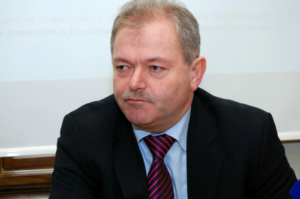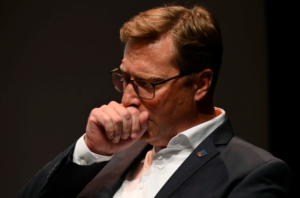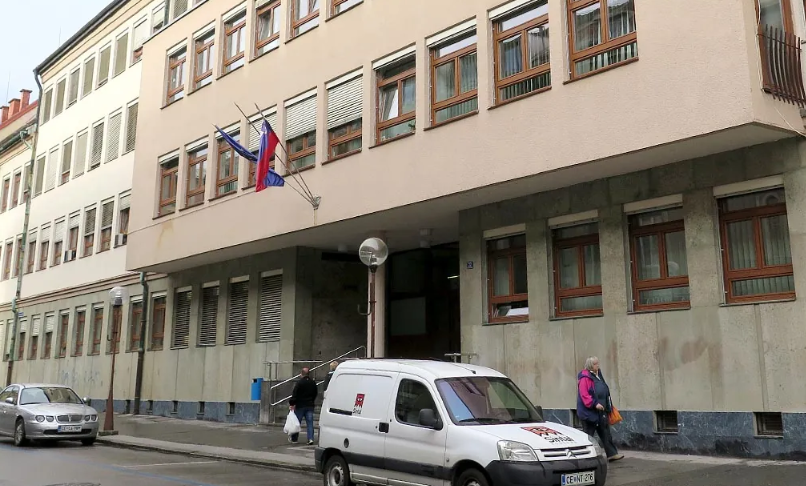Tuesday’s Trenta trial brought the testimony of two former employees of the now-defunct construction company Eurogradnje. Apparently, the court wanted to find out whether the indictment’s allegations that the company was only an intermediate link in securing a kind of “gift” for the President of the Slovenian Democratic Party (Slovenska demokratska stranka – SDS), Janez Janša, who exchanged a small apartment and property in Trenta for a larger apartment in Ljubljana when he was leading his first government, were true.
Now that it has been confirmed for some time that the property in Trenta was not overpaid – despite what the mainstream media (the web portal Necenzurirano, the magazine Mladina, and others) claim – namely, that Janez Janša received 20 times the actual value for the property in Trenta – the court or the Chamber, headed by District Judge Cvetka Posilovič, is, so to speak, pulling out every last bit of information that would either confirm or refute the claims of the Specialised State Prosecutor’s Office (SDT) in the indictment – namely, that this was a big deal, in which one of the accused got rich, and the other two may have profited from a commission or a reward.
Witnesses remember practically nothing
Janša was absent from the court on Tuesday – rightly, of course, as he is attending an international conference in Israel. However, there was a procedural complication, as his lawyer, Franci Matoz, had informed him in advance that only documentary evidence would be read out at the main hearing. However, the failure to summon witnesses last month has somewhat changed the plans. Tuesday’s witnesses, Boštjan Samotorčan and Robert Bičič, should have been heard, but were initially unavailable, and the hearing, which was due to take place last week, on the 18th of March, was cancelled. The Chamber, therefore, decided, as a matter of common sense, to hear the two witnesses who were present, but formally outside the main hearing.
However, these two hearings did not bring any great success for the prosecutors. Bičič, who came to court injured (and was brought there in the court’s official transport), was in charge of the bank account at the company Eurogradnje and authorised to receive cash, said that he knew only what the media had written about the Trenta business. He had only worked with Mitja Majnik at the Imos company and knew a little more about the Fiesa project, where he helped bring subcontractors in. He also knows the first defendant, Branko Kastelic, with whom he used to work at the Grosuplje construction company. However, he has never spoken to anyone about the Trenta case.

Samotorčan, the co-founder of the company, which had been in operation for 15 years (from 1999 to 2014, when it went bankrupt; the bankruptcy proceedings had started three years earlier), and former project manager, gave a similar answer, saying that he also knew nothing about the Trenta case. Eurogradnje was primarily a construction contractor. He was also unable to say anything concrete about Eurogradnje’s cooperation with Imos. He had once gone to Fiesa to help there as a construction expert, but that was all.
In short, this turned out to be another day of investigating shadows. Only this time, the matter was over in record time, after just an hour and a half. The answers of the two witnesses at least made it clear that neither Imos nor Eurogradnje had paid much attention to the purchase of the land in Trenta. Most of those questioned do not remember the details, and the deal would probably have been long forgotten if it had not been brought to court for political reasons, because one of the parties to the proceedings was the President of what is now an opposition party.
The prosecution still claims that it was a sham deal
As reported in some media, the Trial Chamber is seeking to clarify the details of the 200,000 euros advance made by Imos to Eurogradnje for the Fiesa project through the latest hearings. According to the prosecution, this was never accounted for and was only a fictitious advance, as Imos used this money to enable Eurogradnje to buy Janša’s property in Trenta. However, there is documentation in the court file which proves the opposite: that the advance was cleared, albeit with some delay.
It should also be noted that the (former) newspaper Finance (now just a web portal) and some other media outlets have labelled Eurogradnje “a Jamnik family company”, but in this case, it is not Borut Jamnik, the former financial godfather of the trio of journalists who now make the Necenzurirano – Uncensored web portal (including the famous Vesna Vuković), but Janez Jamnik, former member of the SCT board, brother of the banker Alojz Slavko Jamnik, and the bishop and philosophy professor Dr. Anton Jamnik. We have not yet obtained information on who all the co-owners of Eurogradnje were, as the company was removed from the records due to bankruptcy – not to be confused with the similarly named Euro gradnje, d. o. o., from Kranj.
Two further hearings are scheduled for April, namely, on the 8th and the 15th of April. In the absence of new evidence and witnesses, the trial is likely to conclude before the summer. Perhaps this is the reason why the godfathers from the background are already “courting” potential candidates for the “messianic” position now held by Robert Golob through opinion polls. We have reported that the Member of European Parliament Vladimir Prebilič, has recently declared his intention to enter national politics. He has no rational reason to do so, since salaries in the European Parliament are much higher than those of officials in Slovenia. So, his eventual entry into politics will depend mainly on how hard his “godfathers” push him into a corner.

It is significant, however, that in recent days, the Specialised State Prosecutor’s Office has found itself in the spotlight for directing the pre-trial proceedings against three MPs of the New Slovenia party (Nova Slovenija – NSi), including the President of the Commission for Supervision of the Intelligence and Security Services (KNOVS), Janez Žakelj, and MEP and NSi President Matej Tonin. Well, it seems that here, too, reason is beginning to prevail, and the realisation is dawning that the Slovenian repressive authorities are at the service of the transition-left part of politics. This is, after all, also what the Trenta case proves.


